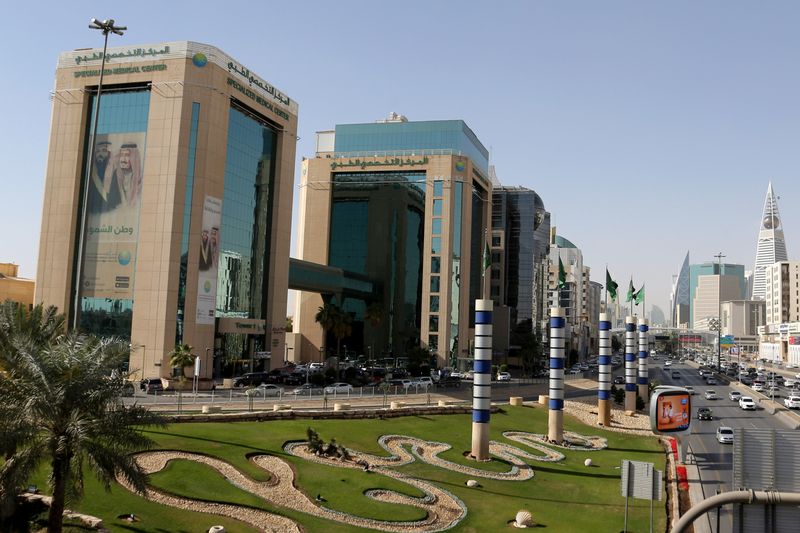DUBAI (Reuters) - Growth in Saudi Arabia's non-oil sector eased in July from the previous month, with new orders increasing at the slowest pace in two and a half years, a survey showed on Monday.
The seasonally-adjusted Riyad Bank Saudi Arabia Purchasing Managers' Index fell to 54.4 in July from 55.0 in June. It was the lowest reading since January 2022, although still well above the 50 level which marks growth in activity.
The New Order sub index slowed to 55.7 in July, from 56.0 the previous month, and was also the slowest pace of expansion since January 2022, linked in part to capacity pressures and increased competition, the survey found, although demand remained supportive.
Output growth eased to a six-month low.
"Demand has played a crucial role in driving orders, ensuring that businesses remain active and forward-looking," Naif Al-Ghaith, Riyad Bank's chief economist said.
"However, the extensive competition in the market has led to a downward pressure on prices, as companies strive to maintain their market share by offering more attractive pricing to consumers."

Saudi Arabia's real gross domestic product (GDP) shrank 0.4% in the second quarter year-on-year, preliminary government data showed, driven by a decline in oil activities which has limited overall growth for several quarters.
The government's commitment to expanding the private sector and economic diversification is likely to keep non-oil growth buoyant this year, despite a slowdown in overall growth, although lower oil revenue could constrain investment in non-oil sectors, economists say.